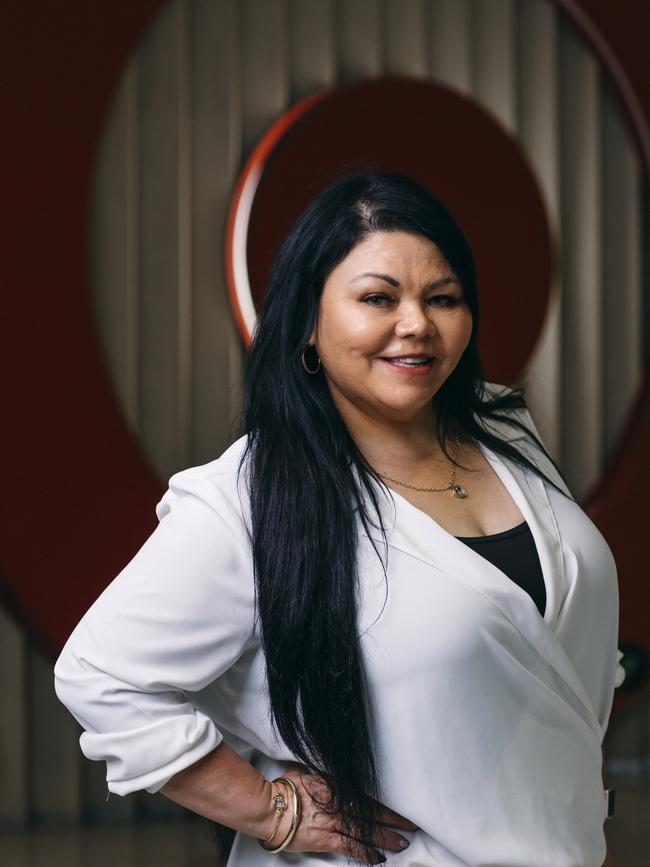How workplaces could help shape The Voice referendum outcome
Workers are increasingly looking to First Nations colleagues to educate them on Aboriginal culture. Here’s how to engage in these conversations respectfully.
Careers
Don't miss out on the headlines from Careers. Followed categories will be added to My News.
Workplaces could play a key role in shaping the outcome of the Indigenous Voice referendum, as workers increasingly look to First Nations colleagues to educate them on Aboriginal culture.
But fear of causing offence is stifling many at-work conversations, with LinkedIn research finding 54 per cent of Aussie workers are nervous about asking their First Nations colleagues the wrong question.
Nevertheless, the appetite for cultural awareness is growing, with 28 per cent of Indigenous Australians saying they have been encouraged to share their cultural rituals and activities with their co-workers, the research shows.
Respect
Inclusivity expert Cathy Ngo understands the anxiety that surrounds discussions about culture. But, rather than shy away from the issue, encourages workers to start conversations with their Aboriginal and Torres Strait Islander colleagues with respect and a willingness to learn.
“Conversations about racism can be complex and sensitive,” she says.
“People may fear saying the wrong thing, intentionally perpetuating stereotypes or inadvertently causing harm.
“Not many people realise, but there is a lot of diversity even within First Nations peoples.”
She says understanding and appreciating the diversity and richness of First Nations Australians is an ongoing process that requires “humility, active listening and a commitment to continuously educate yourself about their histories, cultures and contemporary issues”.
“Not all individuals may feel comfortable discussing certain topics or sharing personal experiences (and) … Indigenous peoples are not obligated to educate others about their cultures,” she says. “So it’s essential to approach conversations with sensitivity and understanding.”

Changing stereotypes
Proud Gamilaraay woman Gael Duff welcomes questions from colleagues about her culture and recognises the intentions are usually genuine, even when remarks come across as insensitive.
“Intent (behind the questions) is really, really important,” says Duff, Indigenous affairs manager at Target.
“I probably welcome more of those questions that are (based on an incorrect understanding of Indigenous culture) because the curiosity is there and (colleagues) actually want to know.
“And if a question being asked is actually a little bit off, I will generally say, ‘I’m happy to answer that question but a better way of saying that would be XYZ’.”
In the past, Duff has received questions from co-workers based on inaccurate stereotypes about Aboriginal and Torres Strait Islander people, relating to socio-economic status and leadership abilities.
More recently, colleagues have sought her opinion on the forthcoming referendum. Duff points out it’s a topic on which First Nations peoples hold differing views, but polling has shown a strong majority support the Voice – between 80 per cent (according to an Ipsos survey of 300 First Nations people in January) and 83 per cent (a YouGov poll with a sample size of about 730 in April).
Shared responsibility
Regardless of cultural background, everyone has a responsibility to foster more inclusive workplaces, LinkedIn Australia managing director Matt Tindale says.
He encourages non-Indigenous workers to learn more about Indigenous culture by engaging in cultural sensitivity training and following First Nations people on social media.
“It’s important to provide a safe environment for all within a workplace and part of this is ensuring that Indigenous people are not met with tokenistic and culturally insensitive actions, words or interactions that are solely based on their cultural background,” Tindale says.
“(At Linked In), we strive to foster a diverse and vibrant community where high-quality, productive conversations take place.
“The aim here is to create a space for thoughtful and constructive discussions about important topics, such as the referendum.
“We want to provide an opportunity for Australians to become aware of and learn about our shared histories, cultures and achievements, which is vital for positive conversations.”

Just start
Workers must rise above fears of saying the wrong thing to bridge the knowledge gap and promote cultural understanding in the workplace, Finder Australia chief executive Chris Ellis says. Finder Australia participated in LinkedIn’s recent Connective Voices campaign.
“Be authentic, be curious. I don’t always get it right but that’s OK,” he says.
“It’s not good enough to say I’m a little bit worried that I might say the wrong thing so I won’t say anything – that’s not OK.
“By amplifying the voices of Indigenous people, I hope that we can foster a more inclusive and diverse workforce that celebrates and respects Australia’s cultural heritage.”
Conversation starters
Questions to help better understand the experiences, cultures and perspectives of First Nations co-workers:
• Which First Nations or Indigenous community do you belong to?
• What are some significant challenges or issues that your community faces today?
• Can you tell me about cultural ceremonies, celebrations or rituals that are important to your community?
• Are there any stories, legends or oral traditions that you would like to share?
• What role does the land play in your community’s cultural and spiritual beliefs?
Source: Cathy Ngo
Originally published as How workplaces could help shape The Voice referendum outcome


